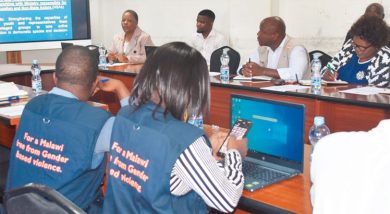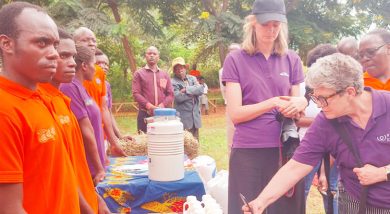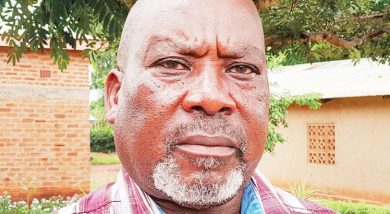Ministry warns of more water challenges
Ministry of Agriculture, Irrigation and Water Development has warned of acute water supply challenges if nothing is done to save the country from the growing water crisis.
The ministry’s director of Water Supply and Sanitation Emma Mbalame said in a telephone interview yesterday that at the rate the country is going in terms of catchment area degradation, population boom and failure to maintain and upgrade water supply infrastructure, more people will fail to access water in the coming years.

She said: “We have a hoard of problems that we must deal with. Examples abound from the siltation which has resulted in the drying of Mpira Dam in Ntcheu [which also supplies Balaka and Neno districts], the onslaught of the Malingunde Dam catchment area [in Lilongwe].
“Water boards are failing to supply water to people because their infrastructure is depleted and needs heavy investment. The ever-growing population has overwhelmed the projections of water users.
“There must be a heavy injection of resources into water infrastructure, a stop in environmental degradation and sound consistent policies.”
Mbalame noted that some of the policies were contradicting, highlighting that while water policies were designed to facilitate planting trees to conserve catchment areas, forestry policies advocate planting of trees for harvesting.
Her sentiments come against a background of the country standing at the crossroads in terms of water problems with many districts reporting dry taps, forcing water users to draw water from unprotected sources; a recipe for waterborne diseases.
Blantyre City has since last week been experiencing dry taps where residents from Ndirande, Chirimba, Bangwe and Chilobwe townships, among others, have had to endure a minimum of three days without water.
Maness Chikopa, a resident of Chirimba Township, said the location had no running water last week from Wednesday to Saturday.
She said: “We had to find other water sources such as boreholes and streams most of which are polluted. The water that we get from these sources is not fit for drinking and it is not everyone who can boil or treat it. The likelihood of contracting waterborne diseases is very high.”
The water problems have also been reported in Balaka, Ntcheu, Lilongwe, Kasungu, Mzuzu and Chikwawa, among other districts, where residents are struggling to get the commodity.
Lilongwe Water Board recently announced that it has started rationing water while in Kasungu Municipality, the Central Region Water Board said the water situation was worsening, a scenario that was also recorded in the 2018-2022 District Development Plan for Balaka.
For the capital city, Lilongwe, plans are underway to implement the Salima-Lilongwe Water Supply Project while works have started on the Likhubula Water Supply Project for Blantyre Water Board to source water from Mulanje to Blantyre City to deal with the perennial water challenges the city has been facing.
The Global Forest Watch reported that from 2001 to 2017, Malawi lost 149 hectares of tree cover.
Malawi’s current population is projected to be at 19.1 million, representing a growth rate of 2.91 percent, according to the World Population Review.
In 2018, Malawi recorded 30 cholera deaths. The cholera outbreak was blamed on drinking contaminated water.
The United Nations (UN) placed clean water and sanitation as its Sustainable Development Goal (SDG) number six, highlighting the importance of providing potable water to all people across the world.
Earlier this year, Northern Region Water Board (NRWB) attributed its failure to provide water to residents in areas under its jurisdiction to power shortages at its intake.
Weighing in on the issue, Water for People country director Kate Harawa said the country was facing a myriad of challenges pertaining to the water sector.
She mentioned global warming which she said was breeding drought and floods while on the other hand, she cited poor water and land management as triggers of the water problems the country is currently facing.
Said Harawa: “The problems that we are grappling with are multifaceted as highlighted. Land and water management cannot be separated. The problems have resulted in soil erosion causing siltation in our water resources. This has reduced available water and made water treatment expensive. This is because water catchment management has not been given the attention it deserves. Hence, our rivers and lakes are drying due to unavailability of land cover.”
While hailing the passing of the Water Resources Act, she appealed for the formulation of a Water Resources Authority which could be instrumental in coordinating of water usage bodies and management of the sector.





